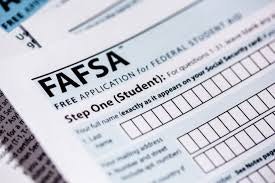The National Association of Student Financial Aid Administrators (NASFAA) recently came out with a series of ten papers on ways to streamline the notoriously complicated FAFSA, the application for student financial aid.
With grant funding from the Bill & Melinda Gates Foundation last summer, the organization created an updated version of its 2015 proposal for simplifying the FAFSA and called on a slew of experts to assess the work and contribute research of their own.
The FAFSA can be an onerous process for low-income students under ordinary circumstances, said Karen McCarthy, NASFAA’s director of policy analysis, but the release of these papers feels “particularly timely” during the coronavirus pandemic. COVID-19 has swiftly changed people’s enrollment plans as some choose to go back to school or switch institutions.
For students making those last-minute decisions, “we really need this FASA application process to work well for them, because it can’t be a burdensome, time-consuming process … That really does affect people’s plans. The things that they had decided they wanted to do may not theoretically be possible if the FAFSA process takes too long.”
The goal of the paper series is to offer relevant data and tangible recommendations to policymakers – when the time comes for the Higher Education Act’s long overdue reauthorization. The legislation that governs federal higher education programs is supposed to be renewed every five years but hasn’t been reauthorized in over a decade.
A bipartisan push, simplifying the FAFSA “has been supported on both sides of the political aisle for years now,” McCarthy said. “And we expect it to be a hot reauthorization topic, if and when we get there.”
Since NASFAA’s 2015 proposal, some key factors have changed, mainly the tax return system. With updated tax information, the 2020 recommendations reconfigured the original proposal’s core idea – that tax information can be used to steer families into three different pathways for applying for financial aid, simplifying the process. It also takes into account The Future Act, passed in December 2019, which allows the Internal Revenue Service (IRS) to directly share tax information with the education department. This means that students don’t need to self-report if they didn’t file a tax return, which could at least mean a simpler process for non-filers.














